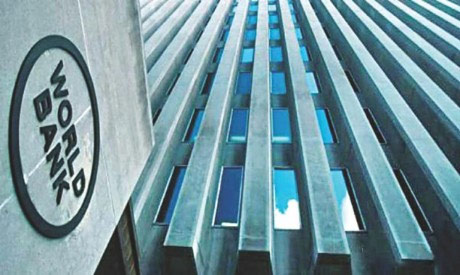
The World Bank’s Board of Executive Directors approved on Wednesday a $400 million loan to support Egypt’s universal health insurance system (UHIS) as the country’s pathway towards achieving universal health coverage and improving the health of its citizens.
Egypt’s universal health insurance system, through the new World Bank loan, will support Egypt to achieve long-term stability in health financing with less dependence on state budget and less exposure to economic fluctuations, Minister of Finance Mohamed Maait said on Wednesday.
“We are pleased to partner with the World Bank to support Egypt’s universal health insurance system, which will help Egyptians access the healthcare they need without suffering financial hardships,” he added.
The World Bank’s Board of Executive Directors approved on Wednesday a $400 million loan to support Egypt’s universal health insurance system (UHIS) as the country’s pathway towards achieving universal health coverage and improving the health of its citizens.
Minister of International Cooperation Rania El-Mashat said expanding healthcare services is a national priority for Egypt, adding that the UHIS with the World Bank encompasses mandatory coverage for citizens and unifies, for the first time, efforts with the private sector.
She stated that the project aims to provide quality healthcare services, including to the most vulnerable, by eliminating existing disparities.
“Egypt’s Universal Health Insurance Law guides the implementation of the UHIS and accelerates progress towards Universal Health Coverage in line with the health pillar of Egypt‘s 2030 Sustainable Development Vision. The law envisions mandatory coverage for all citizens in the country, including vulnerable groups,” said El-Mashat.
The project will help Egypt put in place the building blocks of the UHIS, to roll the system out in first phase governorates, and to offer temporary financial protection to the most vulnerable across the country to protect them from high out-of-pocket health expenditures resulting from the COVID-19 outbreak, according to the bank’s statement.
The bank also said that the loan is complementary to the World Bank-financed COVID-19 Emergency Response Project that aims to support the immediate operational challenges and critical areas of support identified as key gaps in Egypt’s COVID-19 response, according to the statement.
World Bank Country Director for Egypt, Yemen, and Djibouti Marina Wes said the World Bank’s support will help Egypt raise its coverage of the UHIS in six governorates, strengthen UHIS-related governance and institutions, and provide temporary financial protection against high health expenditures for vulnerable populations across the country.
She added that the UHIS is expected to complement and contribute to Egypt’s focus on improving human capital. As an early adopter of the World Bank’s Human Capital Project, Egypt has committed to the "whole of government" approach to build, protect, and utilise human capital. The UHIS will contribute to building human capital through investing in early years of life and providing better healthcare, antenatal care, and targeted childhood stimulation.
Over the years, the World Bank has strengthened its engagement in Egypt’s health sector, including the Transforming Egypt’s Healthcare System Project, which was launched in September 2018 to help improve health service delivery in Egypt, according to World Bank data.
The project supported the screening of 52 million citizens for Hepatitis C and Non-Communicable Diseases, provided ongoing treatment for 2.2 million patients, in addition to supporting the improvement of the quality of care in 600 Primary Health Care facilities and 30 tertiary hospitals, trained and contracted 2,800 community health workers, boosted demand- and supply-side interventions for family planning programmes; and provided advanced nucleic acid testing for public blood supply.
Short link: